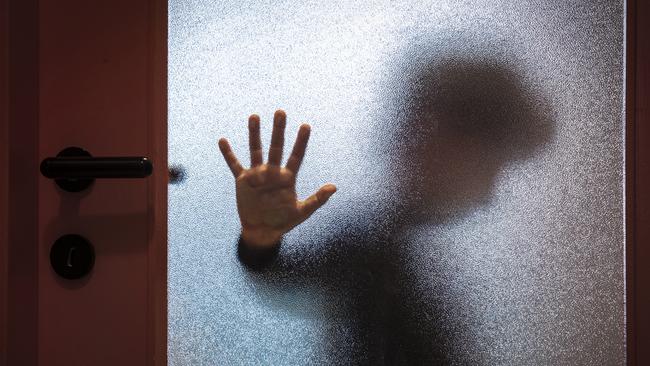Jump in number of school bullies served with intervention orders
Thousands of Victorian children are being served intervention orders as parents go above principals and schools to take their child’s safety into their own hands.
Police & Courts
Don't miss out on the headlines from Police & Courts. Followed categories will be added to My News.
Children as young as nine are taking out intervention orders against their schoolyard bullies and former friends.
The Sunday Herald Sun can reveal almost all protective orders handed down in the Children’s Court are to protect kids from other children at school, with the number of orders issued rising just before the pandemic hit.
New data, released by the Victorian Sentencing Advisory Council, reveals that in the past decade to 2020, more ‘school related’ relationships such as fellow students, as well as teachers, were served with one of the more than 10,000 interim and permanent protective orders than a child’s neighbour or someone who lives at their home.
More than two thirds of the intervention orders were taken out by females.
Rural and regional Victoria accounted for 55 per cent of orders issued to young people, with 45 per cent in the Greater Melbourne area.
Gippslands and Barwon South West were the top regions for where orders were issued, with 603 and 571 respectively.

“This is very consistent with what we see in court, where the typical example would be a schoolyard type situation where there’s an assault and there’s an application along with that assault in the classroom or within the school environment, or even out of school, but some sort of link with a fellow peer of a similar age,” the report read.
About eight per cent of applications for IVOs in Victoria are heard in the Children’s Court.
But Law Institute of Victoria children and youth issues committee representative Joel Orenstein said parents were seeking out the more heavy handed approach of a protective order on their children’s behalf because they felt schools had not taken strong enough action against bullying and assaults.
“Parents won’t be satisfied with that process and want to get the courts involved through the issuing of intervention orders, and the issue is that when it’s children, you’re criminalising a bunch of behaviours they don’t understand,” Mr Orenstein said.
“They’re a very blunt instrument to deal with conflict between children that can have pretty dire consequences for the respondent.”
The state government in 2010 introduced legislation aimed at driving down the number of protective orders issued against children through mediation, but the figures have continued to rise.
704 protective orders were issued in the Children’s Court in 2013, but the number of orders issued rose 59 per cent by 2019 – when 1120 were issued just before the pandemic hit.
“What we need to do differently is make them (IVOs) a point of last resort,” Mr Orenstein said.
Under policy outlined by the Department of Education, schools must ensure requirements of an intervention order are being met for all parties involved while putting first the best interest of the protected child.
Adhering to IVOs at school is done on a case-by-case basis, but includes measures such as the respondent being unable to attend school for a period of time, or that they cannot be on school grounds while the protected person is on campus.
Drysdale mother Renee Stokes sought out protective orders against three students at Bellarine Secondary College after they allegedly kicked her 11-year-old autistic daughter, Kiarra, in the head and attempted to rip out her navel ring in an attack on school grounds last week that left her concussed.
Ms Stokes said she resorted to the IVOs because she felt the school’s safety plan for her daughter was ineffective.
“We’ve had a safety plan already put in place but these girls harass her and bully her. How could this have happened?” she said.
“I even moved Kiarra from her primary school to have her away from these girls before they were enrolled at the same high school, so there was a record of this behaviour,” she said.
A Victorian Government spokeswoman said the findings from the Sentencing Council’s report would inform the Victorian Law Reform Commission’s review of the state’s IVO system.
“Everyone has the right to feel safe. Any behaviour that does otherwise is completely unacceptable,” she said.




